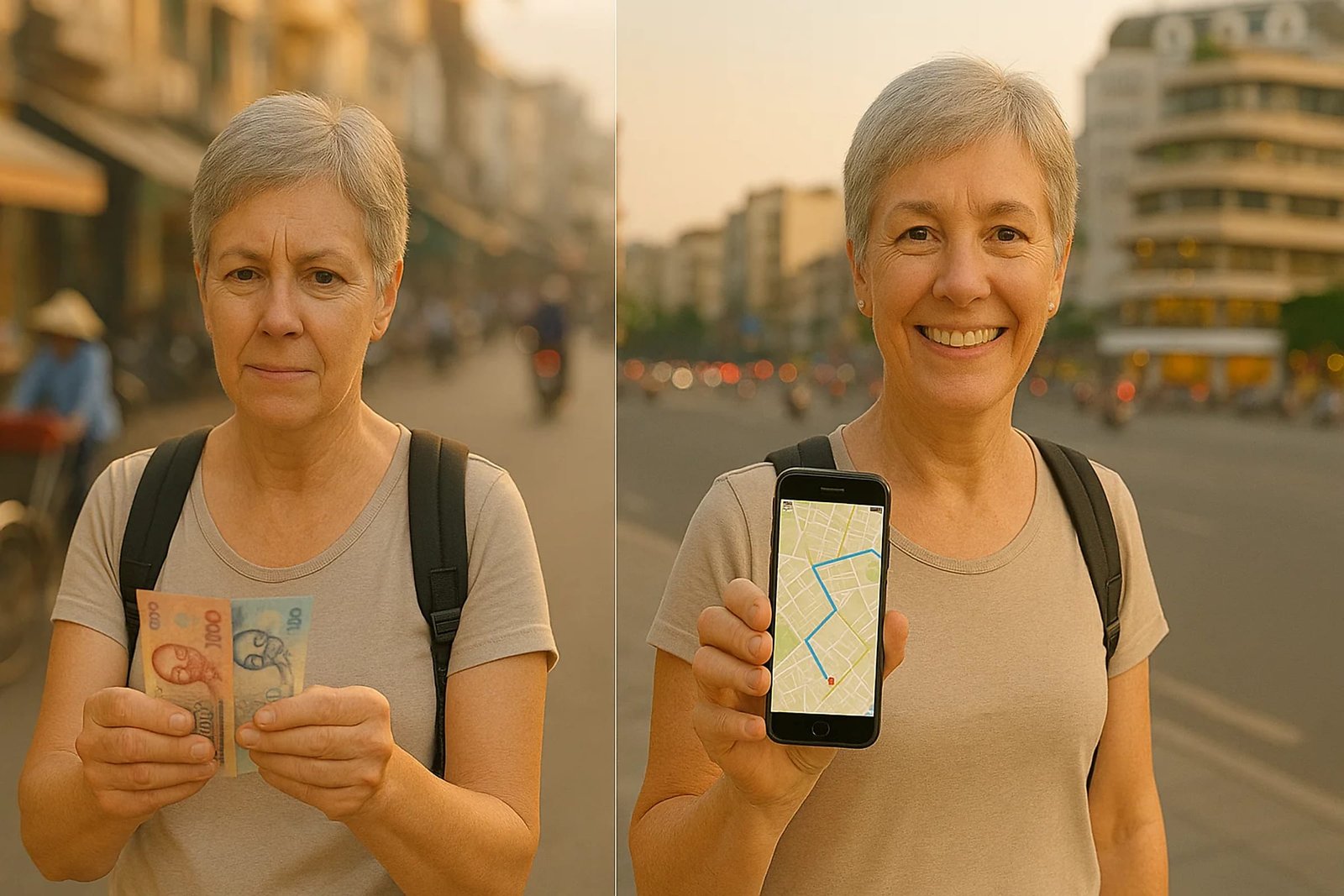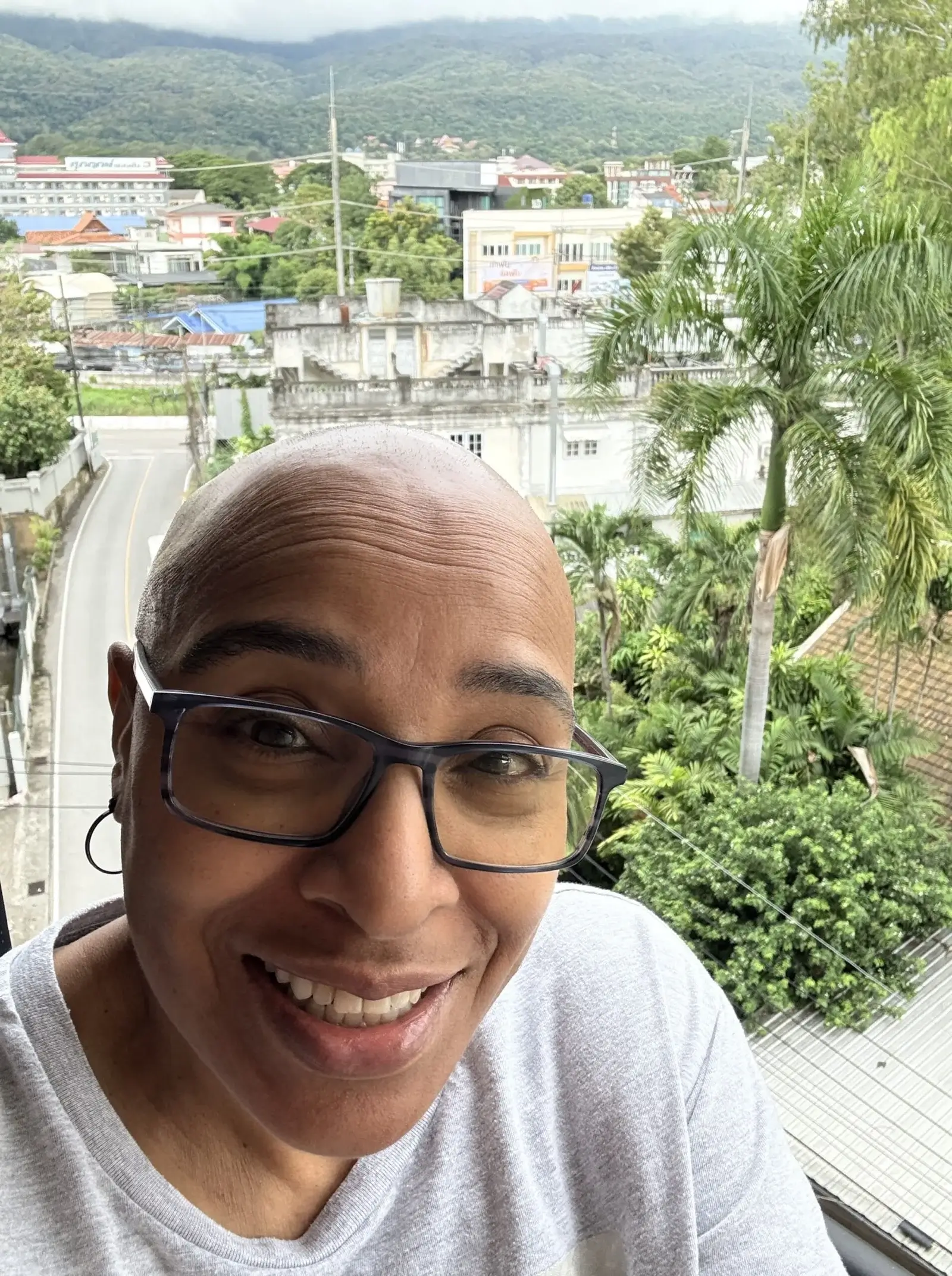Explore the world with confidence, clarity, and peace of mind
The Fear That Holds Many Back
Solo travel is one of the most freeing and fulfilling experiences—especially for seniors. But let’s face it: safety concerns often get in the way. Whether it’s fear of getting lost, managing health needs abroad, or dealing with unfamiliar environments, many older adults hesitate to travel alone because they’re unsure how to stay secure and confident on the road.
But the truth is, with the right preparation and mindset, solo travel can be incredibly safe—and deeply rewarding.
What Happens When Safety Isn’t Prioritized
Ignoring travel safety can lead to unnecessary stress, unexpected costs, and in some cases, health or legal complications abroad.
Imagine arriving at your destination only to discover your accommodation isn’t as advertised, or misplacing your medication because you packed it in checked luggage. Worse, think of the anxiety of not having anyone to call if your phone dies in an unfamiliar place.
For senior travelers, staying connected, being well-prepared, and planning ahead are not just helpful—they’re essential.
10 Essential Safety Tips for Seniors Traveling Solo
Let’s make your journey not only exciting but also worry-free. Here are practical, real-world safety tips you can rely on before and during your solo trip:
1. Plan & Book with Reputable Sources
When it comes to flights and accommodation, always choose verified and trusted platforms like Trip.com or Expedia.com, or reputable Travel Advisors that specialize in senior or accessible travel, like we do.
Tip: Look for reviews written by other solo travelers or older adults. They often highlight accessibility, location safety, and host responsiveness.
Stay Digitally Connected
Before leaving, make sure your phone:
- Has an eSim or a local SIM card plan to make international & local calls
- Is loaded with apps like Google Maps, WhatsApp, and Find My Phone
- Has emergency contacts saved under “ICE” (In Case of Emergency)
Bonus: Carry a portable phone charger so you’re never left with a dead battery.
Choose Accommodations Wisely
Your hotel or rental should be:
- In central, well-lit, and populated areas
- Accessible via public transport or cabs
- Equipped with basic security features (e.g., front desk, cameras, secure locks)
Avoid: Isolated or budget stays with inconsistent reviews, especially when traveling solo.
4. Blend In with Locals
Tourists can be easy targets for scams. To stay safe:
- Avoid flashy jewelry or high-end bags
- Dress in neutral, local-appropriate clothing
- Always walk with purpose and confidence
Pro tip: Learn a few local words—”hello,” “help,” “police,” and “thank you” go a long way.
5. Keep Medications & Documents Accessible
Always carry your essentials in your carry-on:
- Prescribed medications (in original packaging)
- Doctor’s note for medical devices (if any)
- Travel insurance details
- Copy of passport & visa
- Emergency contacts list
Pack duplicates and store them separately in case of theft or loss.
6. Share Your Itinerary
Give a copy of your itinerary to a trusted family member or friend. Let them know:
- Where you’re staying
- When you’ll be on the move
- How to reach you in an emergency
Bonus: Check in with them every couple of days via message or video call.
7. Be Smart About Transportation
In a new place, transportation can be a safety risk if not planned. Use:
- Registered cabs or apps like Uber/Lyft/Grab
- Hotel-arranged airport pickups
- Day tours from verified companies
Avoid: Unmarked taxis or unsolicited drivers at airports or tourist spots.
8. Trust Your Instincts
Your intuition is a powerful tool. If something doesn’t feel right—a location, a person, or a situation—walk away or ask for help.
Don’t hesitate to speak to hotel staff or local authorities if you feel unsafe. It’s better to be cautious than regretful.
9. Prioritize Health and Rest
Don’t overpack your schedule. Include time for:
- Meals and hydration
- Medication reminders
- Rest breaks or naps
- Quiet reflection and journaling
Remember, solo travel is about freedom—not racing through a checklist.
10. Take Notes and Reflect
Keep a small travel journal where you jot down:
- Important info (hotel address, key phrases)
- Emergency numbers
- Thoughts and experiences from the day
It’s not just a safety measure—it becomes a keepsake of your courage and adventures.
From Hesitation to Empowered Adventure
By following these solo travel safety tips, you’ll be well on your way to a confident and secure travel experience. You’ll enjoy your surroundings more, worry less, and return home with not just souvenirs—but stories of independence, courage, and growth.
Traveling solo as a senior doesn’t have to be risky. It just has to be smart.
And once you’ve taken that first journey, you’ll realize: you’re capable of more than you imagined.
Free Travel Checklist for Seniors
Want a printable checklist of these safety tips and more?
Download the Solo Travel Checklist for Seniors (Coming Soon)
It includes:
- Packing essentials
- Emergency contacts sheet
- Safety reminders for your journey
Stay prepared and focused with one handy sheet you can keep in your bag or phone.
Ready for Your Next Solo Trip?
At Traveling Savvy Seniors, our mission is to empower you to explore with joy, confidence, and peace of mind. Whether it’s your first solo adventure or your tenth, we’re here to help you travel smarter and safer.
Start planning. Start packing. The world is waiting—and you’ve never been more ready.
Let’s turn your dreams into destinations!





